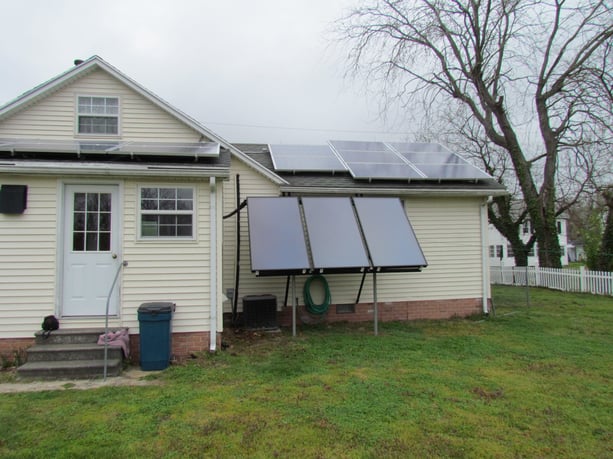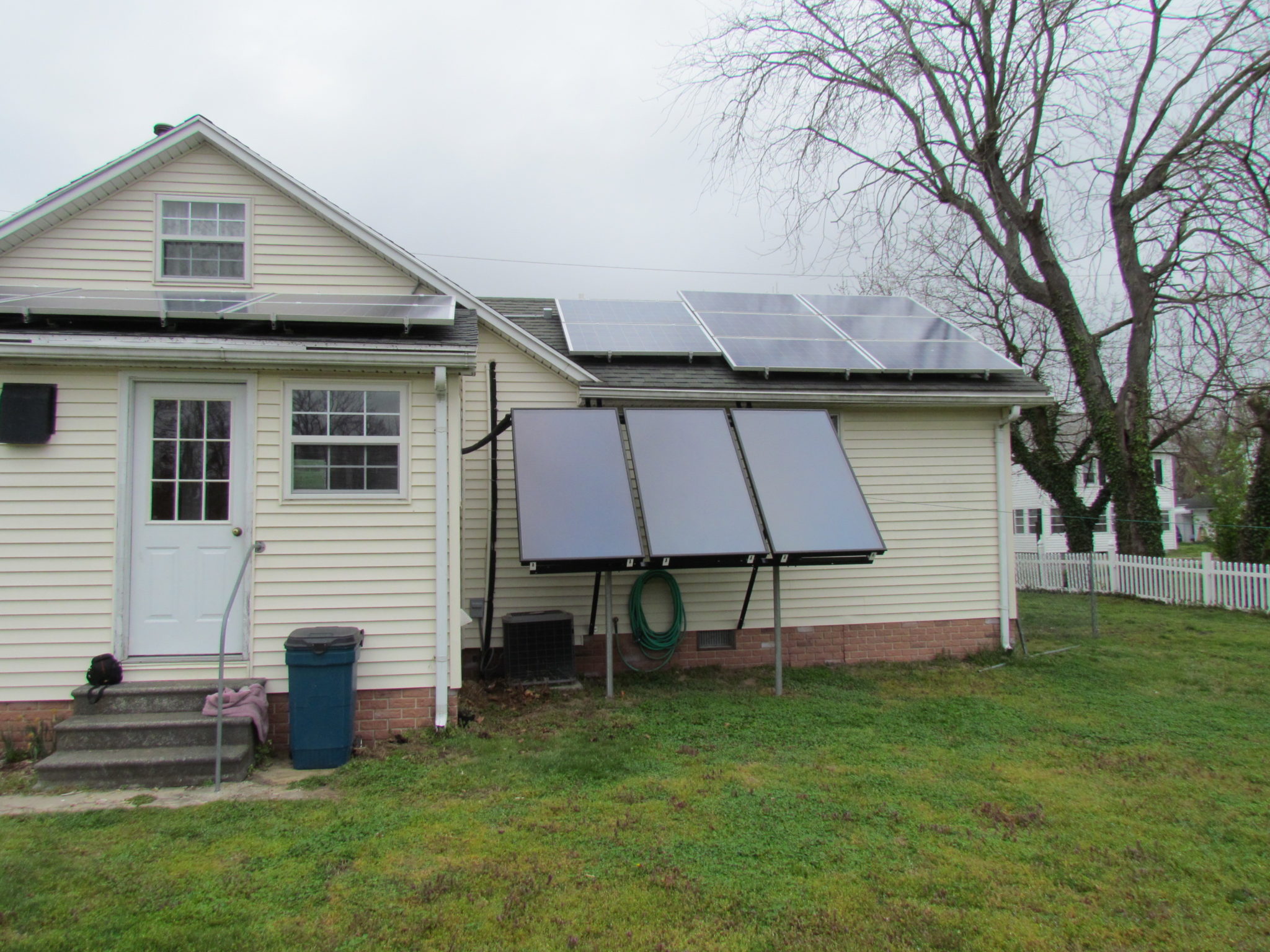
Before we begin, here are some abbreviations that we will use in this article:
PV = Solar Photovoltaic (Solar Electric)
SHW = Solar Hot Water
We have installed a few Solar Hot Water systems, including both residential and commercial systems utilizing flat plate and evacuated tube collectors. However, we currently do not offer Solar Hot Water installations. The primary reason that we don’t offer solar hot water installation is due to the benefits that solar PV systems can offer as an alternative.
Here are some of the basic differences between PV and SHW:
Net Metering:
Net metering is a benefit available to PV in which any production over and above a customer’s usage is credited to that customer to use later. For SHW, any hot water produced that is not used within a reasonable amount of time is lost.
Maintenance:
While a typical PV system has very few moving parts, and therefore very little long term maintenance, a SHW system has moving parts (pumps) that can fail. Also, a SHW system is circulating water or some type of fluid through pipes to the roof. This is an additional liability in the case of a component failure.
Warranties
The main components of a PV systems typically have a longer warranty than the main components of a SHW system.
Typical SHW Components and warranty lengths:
- Collectors - 10 years
- Tank - 6 years
- Pump - 2 years
PV Components:
- Solar Module - 12 years workmanship/25 years performance
- Inverter - 10-25 years
- Racking - 15-20 years
In addition to this, we provide a 10 year workmanship warranty for new PV systems.
Performance Guaranties
SHW: It is difficult and costly to estimate and monitor the benefit of SHW to a customer. Besides available sunshine, there are many variables involved including amount of hot water used, timing of hot water production vs. usage, and size and insulation of piping and storage tank.
PV: While available sunlight can vary from year to year, there are many tools that allow us to calculate closely what the production of the system should be. Due to this, we actually offers a 10 year performance guarantee for PV projects. Also, due to net-metering, the production vs. usage profile is not crucial as long as the kWh’s are used by the customer at some point in time throughout the year.
Seasonal Use
SHW can be a poor fit for some hot water applications, including hot water heating. This is due to the fact that the greatest production of hot water is in the summertime, but the greatest need for hot water is in the winter time. Thanks again to net metering, the seasonal difference of usage is not as crucial for PV, since overproduction of kWh’s in the summer can be a credit toward kWh’s used in the winter.
Price
A typical 2-collector residential SHW system for a family of 4 would cost about $10,000. A typical water heater uses about 4,000-5,000 kWh of electricity per year, so if the SHW were to produce 75% of the household’s hot water, it would offset about 2,250-3,000 kWh’s/year.
A typical 7 kW PV system costs about $28,000. It would take about 2 kW to offset the same kWh usage as the SHW system above. If one were to add 2 kW to this 7 kW system, the additional cost would be about $6,000**. To cover 100% of the electric usage for hot water, one would add about 3.6 kW; this would add about about $10,000** to the cost of the 7 kW system. When installing a PV array, adding a few more modules to cover your electricity usage related to hot water is an obvious choice over installing a SHW system.
Another viable option would be to install a heat pump water heater in conjunction with a PV system. A heat pump water heater would cost approximately $1,500-3,000 to install, but would only require about 1,200 kWh’s of electricity per year for 100% of the household hot water. Using our previous example of a 7 kW, it would cost about $3,600** to add the 0.9 kW required to produce electricity for hot water. The cost of the water heater plus the cost of the additional solar in this example would be about $6,600*.
In these three examples, the SHW option would cost $10,000 to cover 75% of hot water needs; a PV system addition would cost $10,000** to cover 100% of hot water needs; and a heat pump water heater + PV system addition would cost $6,600* to cover 100% of hot water needs.
*The installation of a heat pump water heater is not eligible for the 26% Federal Tax Credit, but may be eligible for a $300 Federal Tax Credit.
**It is important to note that the costs for PV are assuming increasing the size of the PV system that a customer is considering. In the case of the PV system only, the customer would install 9 kW or 10.6 kW instead of 7 kW; in the case of the heat pump water heater + PV, the customer would install 7.9 kW instead of 7 kW.


